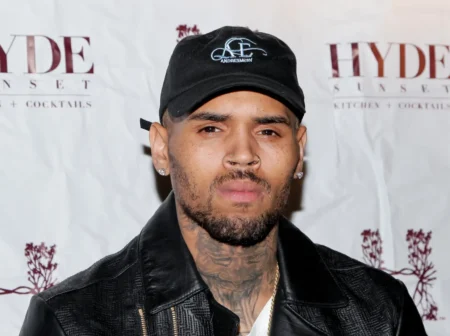The high-profile trial of music mogul Sean “Diddy” Combs continues to grip the entertainment world as commentators and legal experts weigh in on the complex criminal case. While some of Diddy’s supporters and court pundits believe the prosecution hasn’t definitively proven the criminal charges, acclaimed music journalist Touré strongly disagrees, arguing that the government is making significant progress—especially on the racketeering front.
Touré’s Take: An Ongoing Allegation of Abuse
Appearing on TMZ Live following nearly four days of intense and graphic testimony, Touré did not mince words about the allegations against Diddy. He described the accused’s behavior towards singer Cassie as an “ongoing rape,” highlighting the severity of the accusations that have shocked fans and insiders alike.
Touré further asserted that prosecutors are building a compelling case for criminal conspiracy—also known as racketeering—alleging that Diddy’s employees were involved in a coordinated pattern of illegal activity. This perspective underscores the government’s effort to frame the case beyond individual acts, focusing on a broader scheme allegedly orchestrated by Diddy and his team.
Harvey Levin’s Contrasting Perspective
On the other side of the debate is Harvey Levin, a veteran legal commentator and founder of TMZ, who offers a more skeptical view of the prosecution’s arguments. Harvey believes the government might not be relying heavily on racketeering claims as their primary strategy. Instead, he suggests prosecutors will point to other behaviors and evidence to establish the conspiracy.
Harvey also addressed the issue of consent, particularly focusing on Cassie’s testimony. Despite Cassie’s recent claims that she felt degraded during what are described as “freak-offs,” Harvey notes she apparently never explicitly said “no” to Diddy during those encounters. This ambiguity, he argues, could present challenges for the prosecution when convincing a jury beyond a reasonable doubt.
Touré Pushes Back on Consent Narrative
Touré strongly challenges Harvey Levin’s interpretation. He argues that juries are sophisticated enough to understand that the absence of a verbal “no” does not imply consent—especially given Cassie’s alleged circumstances. He pointed out that Cassie likely did not want to engage in sexual activity while enduring a urinary tract infection or during her menstrual cycle, but her ability to refuse may have been compromised because Diddy allegedly exerted controlling influence over her life.
This debate taps into a broader conversation about consent, power dynamics, and coercion—key issues that are now central to the case.
Testimony and Text Messages in Court
During the trial’s latest session, Cassie returned to the witness stand, offering more detailed accounts of her relationship with Diddy. The court also reviewed a trove of text messages exchanged over several years, where Cassie expressed love and affection for Diddy and referenced moments she described as enjoyable “freak-offs.”
These mixed messages have complicated the narrative, creating a challenging puzzle for jurors tasked with discerning truth from manipulation and control.
Touré’s Insider Insight on Diddy’s Personal Changes
Touré, who has followed Diddy’s career closely for years, adds an additional layer of context. Last year, he commented that Diddy’s struggles with drug addiction may have fundamentally changed him as a person—possibly impacting his behavior in personal relationships. This insight paints a picture of a complicated figure whose public success contrasts with private turmoil.
What’s Next?
As the trial progresses, the jury remains tasked with unraveling these conflicting narratives and deciding Diddy’s fate. The courtroom drama continues to divide opinion—not only among fans and critics but also among media insiders like Touré and Harvey Levin.
The case is a potent reminder of how celebrity, power, and the legal system intersect in complicated and often controversial ways.
Why This Story Matters in Entertainment News
Diddy’s trial transcends the typical celebrity gossip, delving into critical societal issues such as consent, abuse of power, and the accountability of influential figures. The contrasting viewpoints from respected commentators fuel public interest, ensuring that this story will remain a dominant topic in entertainment and legal news for months to come.







